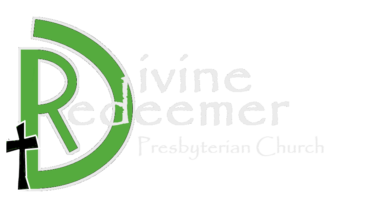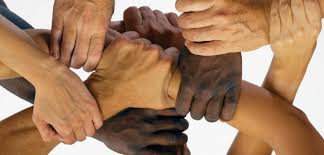The other day I was looking for my glasses…only to have someone tell me I was wearing them! I felt foolish. As my wife, Beth, described in her sermon a few weeks ago, the lenses through which we see and interpret the world are like the glasses on my face that I could not see. I needed someone else besides myself to call them to my attention.
In this moment of our history as a nation, the Black Lives Matter protestors, together with many men and women of all ages and ethnicities are calling to our attention the glasses we have on our collective face, but which we could not recognize were there.
Seeing the invisible systems that we operate within as a society is a very challenging task. Challenging precisely because these systems are invisible to us. We have lived within them for so long that we are no longer able to even recognize they are present. The only way we can begin to see them is when someone outside of our experience, with a different perspective, calls them to our attention. But when they do, we must choose whether or not to listen.
I have had my ‘glasses’ called to my attention so many times I can hardly remember them all…but one stands out for me in particular. When seminary colleagues from Latin America pointed out the first world bias in my reading and interpreting of the scriptures. I had skipped over the constant refrain of God’s concern for the poor because I WAS NOT POOR! And even more importantly, they helped me see how an economic system, built and defended by wealthy nations (and which I benefitted from) had created a system that was perpetuating the poverty of their countries.
Today, the racist bias in my (our) perspective is being called out by black brothers and sisters who are simply saying “you can’t see what we are experiencing because you are not black!” I am listening now, like I have never listened before. One of the important reasons that black lives matter is because black lives see things the rest of us cannot see, they help us see ourselves more clearly. They help us see how a racist culture built upon hundreds of years of white privilege needs to be transformed. I want to hear what they are saying.
One important thing I am listening to is the distinction between personal racist actions, and the systemic racist bias which is the proverbial water we swim in. Personal racist attitudes and actions are incubated in a culture that nurtures, supports and allows individuals to maintain those attitudes and engage in those actions with impunity.
A few examples:
Three police officers in North Carolina were accidentally discovered to have held a horrifically racist conversation amongst themselves while one of them had his car camera on and recorded it. One of the officers talked about how a black woman he arrested deserved a bullet in the head. Another articulated his desire to buy and assault rifle in anticipation of a new civil war so he can “go out and start slaughtering (expletive) blacks” and “wipe (black people) off the (expletive) map and set them back four or five generations,” and another comment referred to a magistrate with a gay slur.
The freely expressed comments by these officers clearly reflect abhorrent personal racist and homophobic attitudes. But here’s what we must also recognize…the fact that they felt comfortable expressing those opinions among themselves on the job, with fellow officers without fear of repercussions reveals a culture of systemic racism and prejudice.
Most of us (I hope) do not engage in such violently racist conversations. But if all of our conversations among friends, work colleagues, even church members were being recorded, we too would find ourselves guilty.
Once I was talking with friends from our church and my son was hanging around the edges of the conversation when someone used a gay slur in the conversation. I felt uncomfortable, but said nothing. My son, however, even though just a teenager in the midst of adults, spoke up. He called out the person and said he felt offended and asked them not to do that. I was ashamed of myself for not having the courage to say it myself, for remaining silent in the presence of that remark. We will not and cannot change the culture that incubates prejudice until we all begin to have the courage my son showed.
That culture is what lives invisibly around ALL of us. It has enabled us to make jokes, tell stories, denigrate reputations, spread stereotypes, perpetuate privilege and engage in all manner of disparaging words and actions that communicate that people of color, or people of different sexual orientations, or women are ‘less than’ and not equal. It enables us to do this and not experience or expect any backlash. That culture has to change. It has to change in police departments. It has to change in churches. It has to change in the halls of power, in our schools and in our streets.
Only when we can listen long enough to those whose lives have been denigrated by the systemic support of prejudice can we begin to recognize the glasses that we don’t realize are on our face. We NEED the voices of black lives, brown lives, queer lives and women’s lives to help us see what we cannot see, but which we MUST learn to see if we are ever to change the culture of prejudice. A culture that violates the very gospel of grace and equality before God that I claim to be truth in Jesus Christ.
My prayer in this moment is that we will finally listen, really listen.

